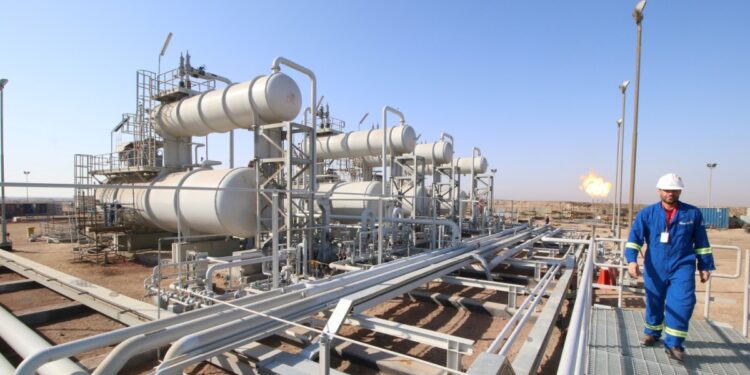Baghdad- The US Energy Information Administration revealed – in its latest report today, Sunday, the volume of Iraqi oil exports to the United States last February, when it reached approximately 5 million barrels.
The data issued by the administration showed a noticeable decrease in the volume of Iraqi oil exports compared to last January, which recorded the export of more than 6 million barrels.
Iraq exports of crude oil to the United States witnessed a remarkable variation in the daily rates, as the average export in the first week reached 257 thousand barrels per day, then decreased to 228 thousand barrels in the second week, and the third week witnessed a significant decline to reach only 46 thousand barrels, while the average export stabilized in the fourth week at 170 thousand barrels per day.
The report also ranked Iraq in the sixth place among the oil exporting countries to the United States and in the second place in the Arab world after Saudi Arabia
Reinforcement
Dr. Tariq Al -Zubaidi, a professor of international relations at the University of Baghdad, believes that this rise falls within the efforts of Iraq to enhance relations with Washington and secure local energy supplies.
Al -Zubaidi pointed out – in an interview with Al -Jazeera Net – that the immediate factors, such as low temperatures and increased demand for oil, contributed to this rise, stressing that the oil relationship with other countries is subject to the equation of supply and demand, with Iraq’s commitment to OPEC decisions.
The Director General of Basra Oil Company, Bassem Abdul Karim, announced – in a statement – that the average exports of Iraq from crude oil reached 3.3 million barrels per day of export ports in Basra Governorate (south of the country).
He also stressed that Iraq’s rapid response to the American demand reflects its desire to avoid possible damage to canceling the exemptions related to sanctions against Iran, expecting that Iraq will seek to renew these exemptions to secure its needs of gas and gasoline.
He stressed that Iraq is forced to deal realistically with the United States to avoid economic crises that may threaten the stability of the government and the political system, warning that any turmoil in oil or supplies may negatively affect the lives of Iraqis, especially in light of the chronic electricity crisis.
The electrical system in Iraq faces increasing pressure, which affects the stability of the electrical current and meet the needs of citizens.
Iran provides Baghdad with about 50 million cubic meters of gas per day, covering about a third of the country’s needs, which is enough to produce about 6 thousand megawatts of electricity, but this amount is not enough to meet the needs of Iraq during peak times.
Al -Zubaidi warned that canceling the exemptions would lead to a severe gas shortage to operate power stations and increase the dependence on import, stressing that Iraq is seeking to develop oil cooperation with the United States and attract American companies to invest in it to consolidate bilateral relations and avoid potential regional sanctions and problems.
Iran’s relationship
For his part, the expert in the oil affairs explained to the grace that the weekly height in exports cannot be considered an indication of the change of exports.
Naama confirmed – in an interview with Al -Jazeera Net – that the quantities allocated to exports are determined annually by Sumo, and that the current rise is due to the raising of a large shipment during the past week, while no amount was raised during the previous week.
He added that crude oil was not officially exported by the Iraqi oil company “Sumo” to Iran, stressing that the quantities allocated to the American, European and Asian markets were previously identified at the end of 2024.
Nima explained that talking about the existence of a relationship between Iraq’s exports to Iran and the choice of the American market as an alternative to it is an unfounded assumption.



